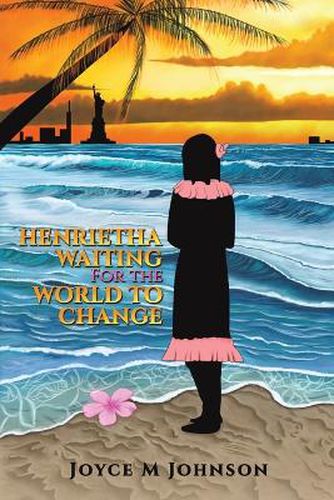Readings Newsletter
Become a Readings Member to make your shopping experience even easier.
Sign in or sign up for free!
You’re not far away from qualifying for FREE standard shipping within Australia
You’ve qualified for FREE standard shipping within Australia
The cart is loading…






This title is printed to order. This book may have been self-published. If so, we cannot guarantee the quality of the content. In the main most books will have gone through the editing process however some may not. We therefore suggest that you be aware of this before ordering this book. If in doubt check either the author or publisher’s details as we are unable to accept any returns unless they are faulty. Please contact us if you have any questions.
It all started in Toronto, Ontario in a coffee shop on the Southside corner of Church and King Street right across the street from St. James Cathedral. Joanna White was having a difficult time in her office as well as in her marriage as her husband had recently walked out on her. Joanna is trying to restructure her life when she's interrupted by Jamaican-born Henrietha Browne, who had just walked in forcefully pulling her chair out, sitting down, taking a sip of her coffee then humming a song and tapping in rhythm close by. Intrigued by Henrietha's carefree nature and desperate to get out of her own thoughts, Joanna asks Henrietha to join. Henrietha agrees and quickly bonds with Joanna while exchanging stories of pain, defeat, and abuse. From that day forward, they were inseparable; making plans to continue to share stories as they explore Toronto. Waiting for the World to Change speaks about marriage and domestic work. Susan Ottawa, a black lawyer in Toronto, and Anita Kingsley, a domestic worker, had met in the same building where they live. One day, they were having lunch and Susan had a book that she had just bought. In anger, she threw a book titled "Is marriage for White People" on the table. The root of Susan's anger comes from knowing she's struggling to find a man and men from all different walks of life are quicker to marry white women before the thought of a black woman crosses their mind. Anita drew a comparison to domestic work. As a college educated woman, she too, found it very difficult to find a job outside of domestic work and in her field of study. She finds herself asking "Is domestic work just for black people?" And it continues.
$9.00 standard shipping within Australia
FREE standard shipping within Australia for orders over $100.00
Express & International shipping calculated at checkout
This title is printed to order. This book may have been self-published. If so, we cannot guarantee the quality of the content. In the main most books will have gone through the editing process however some may not. We therefore suggest that you be aware of this before ordering this book. If in doubt check either the author or publisher’s details as we are unable to accept any returns unless they are faulty. Please contact us if you have any questions.
It all started in Toronto, Ontario in a coffee shop on the Southside corner of Church and King Street right across the street from St. James Cathedral. Joanna White was having a difficult time in her office as well as in her marriage as her husband had recently walked out on her. Joanna is trying to restructure her life when she's interrupted by Jamaican-born Henrietha Browne, who had just walked in forcefully pulling her chair out, sitting down, taking a sip of her coffee then humming a song and tapping in rhythm close by. Intrigued by Henrietha's carefree nature and desperate to get out of her own thoughts, Joanna asks Henrietha to join. Henrietha agrees and quickly bonds with Joanna while exchanging stories of pain, defeat, and abuse. From that day forward, they were inseparable; making plans to continue to share stories as they explore Toronto. Waiting for the World to Change speaks about marriage and domestic work. Susan Ottawa, a black lawyer in Toronto, and Anita Kingsley, a domestic worker, had met in the same building where they live. One day, they were having lunch and Susan had a book that she had just bought. In anger, she threw a book titled "Is marriage for White People" on the table. The root of Susan's anger comes from knowing she's struggling to find a man and men from all different walks of life are quicker to marry white women before the thought of a black woman crosses their mind. Anita drew a comparison to domestic work. As a college educated woman, she too, found it very difficult to find a job outside of domestic work and in her field of study. She finds herself asking "Is domestic work just for black people?" And it continues.